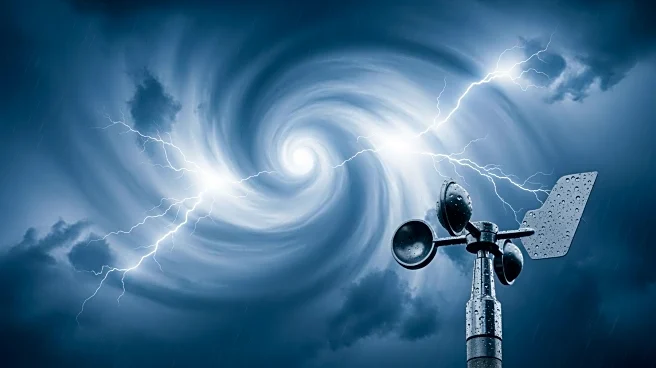What's Happening?
Hurricane Melissa has set a new record with a wind gust of 252 mph, the highest ever recorded by dropsondes, as it approached Jamaica. The National Center for Atmospheric Research confirmed the measurement, which was taken by NOAA's Hurricane Hunter aircraft.
The storm, with sustained winds of 185 mph, was one of the most intense in the Atlantic, causing significant damage and loss of life in Jamaica, Haiti, and the Dominican Republic. The hurricane resulted in at least 90 deaths and $8.8 billion in damages in Jamaica alone.
Why It's Important?
The record-setting wind gust highlights the increasing intensity of hurricanes, which poses a growing threat to communities in the Atlantic region. The data collected by dropsondes is crucial for improving hurricane forecasting and understanding storm dynamics. The impact of Hurricane Melissa underscores the need for robust disaster preparedness and response strategies to mitigate the effects of such powerful storms. The event also raises concerns about the potential influence of climate change on the frequency and severity of hurricanes, prompting further research and policy discussions.
What's Next?
In the wake of Hurricane Melissa, affected regions will focus on recovery and rebuilding efforts. The data from the storm will be analyzed to enhance predictive models and improve future hurricane response strategies. Policymakers and scientists may use this event to advocate for stronger climate action and infrastructure resilience. Additionally, the record wind gust may prompt further investment in research and technology to better understand and mitigate the impacts of extreme weather events.















